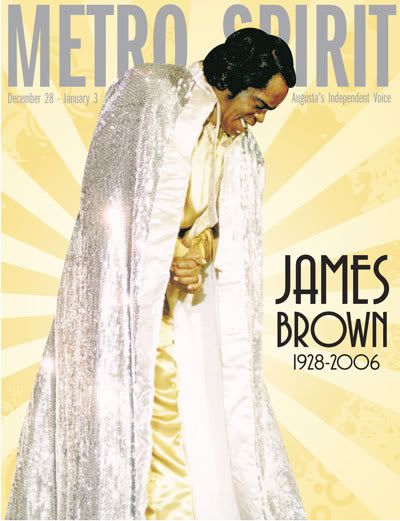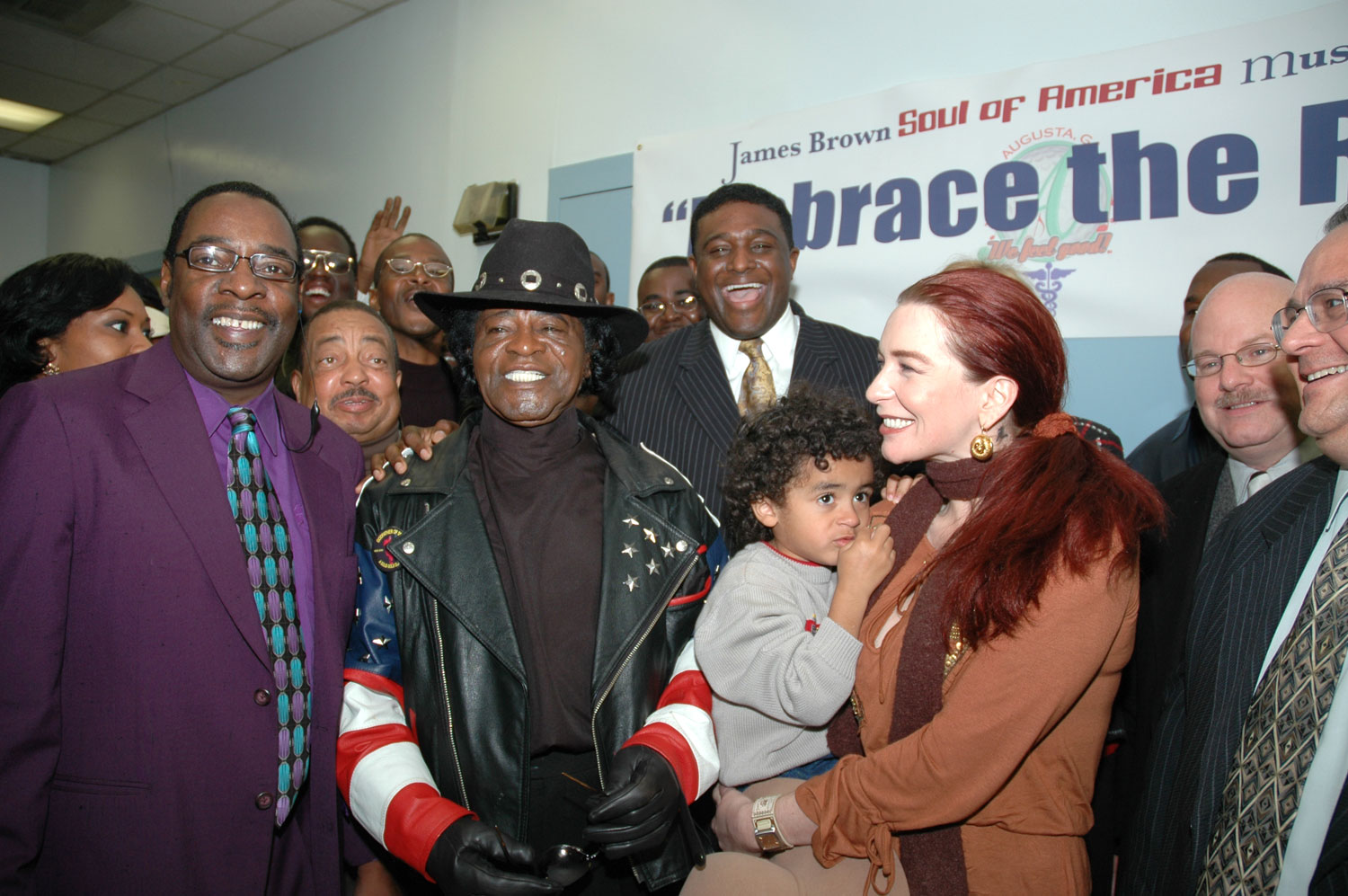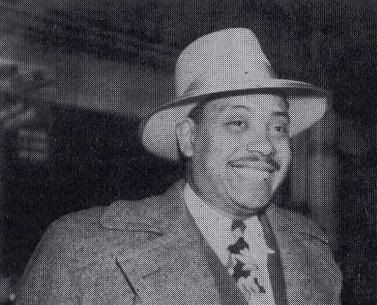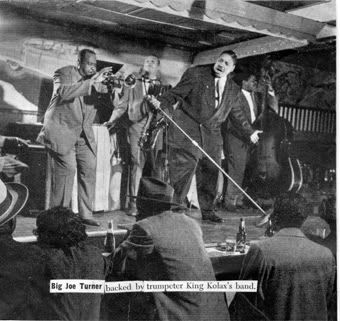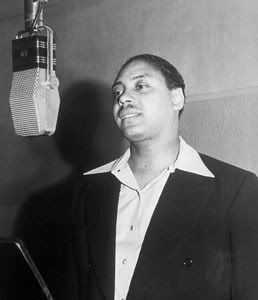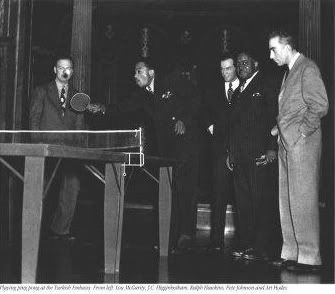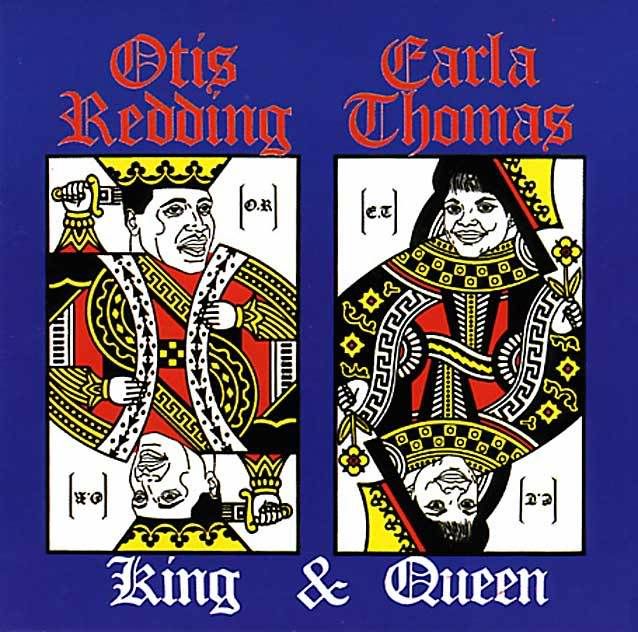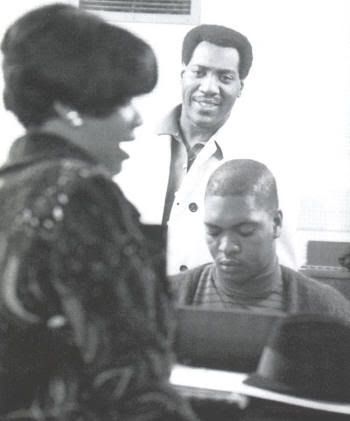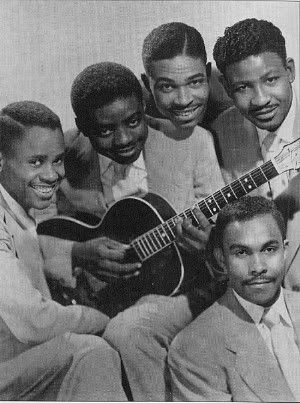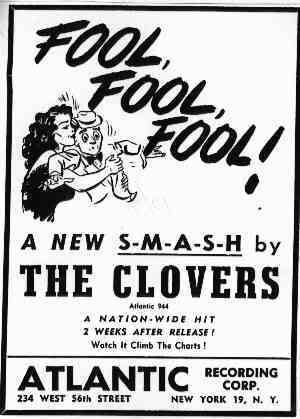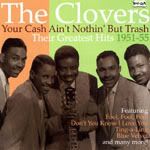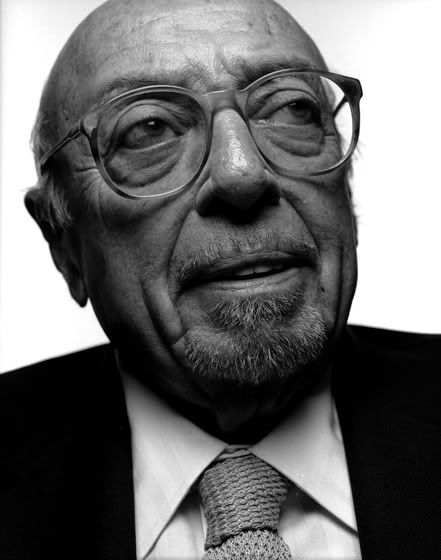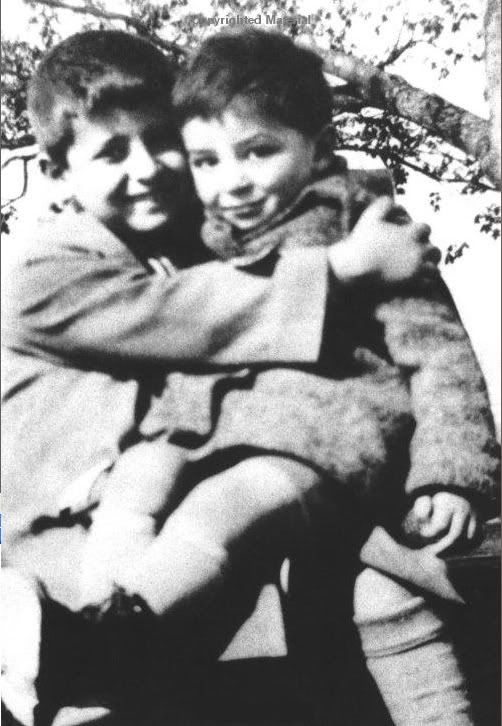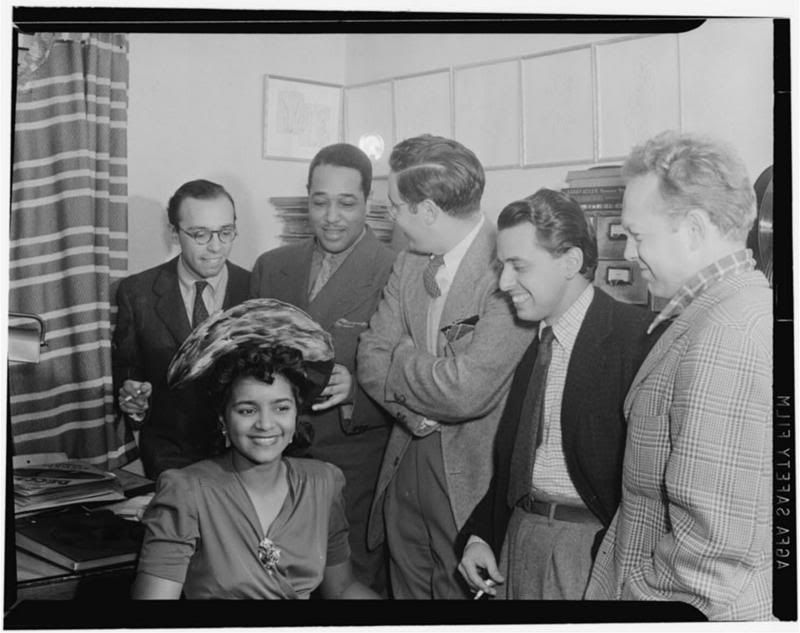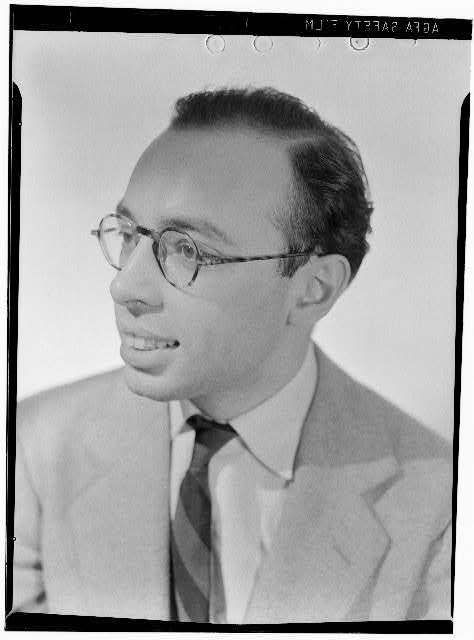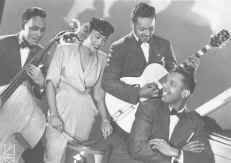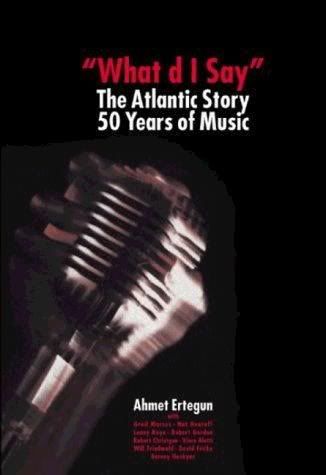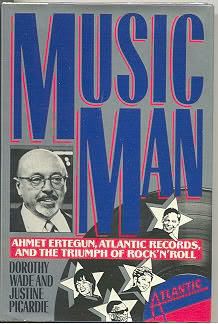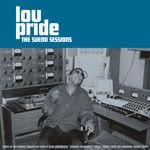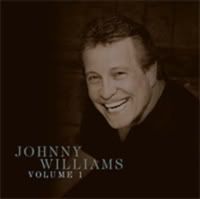As promised, here is my description of the show by
Lou Pride last Sunday night at the Komedia in Brighton...
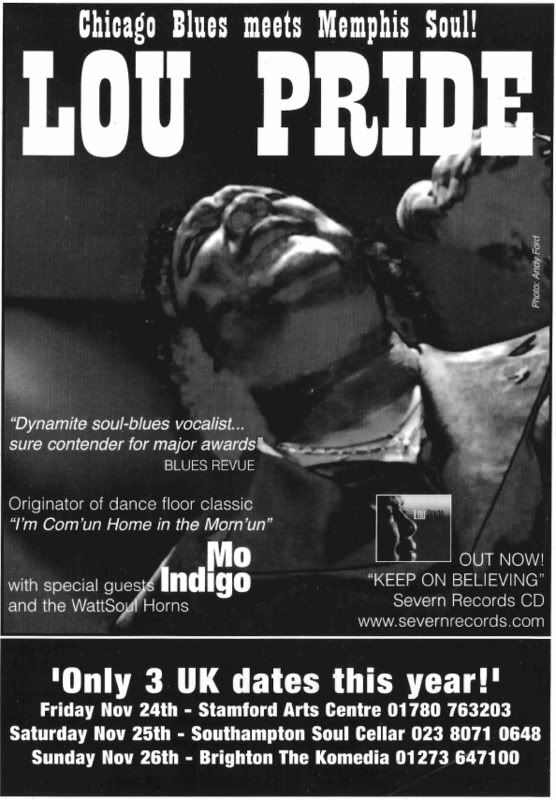
Arriving just in time, I found a side table, and settled down to watch the band,
Mo'Indigo, tune up. They began to play some blues entitled
Fleetwood Cadillac and
Kisses Like Fire, before introducing the syncopated notes of the
WattSoul Horns.

Barely had the horns blared out their fanfare, when guitarist Terry announced,"
Ladies and Gentlemen - Lou Pride!", and Lou Pride was on stage, wearing a fine white linen suit.
Catching the audience by surprise, he built up the audience by asking:
"When he said LOU PRIDE, I didn't hear no noise!"
He got what he was after this time, and then Lou kept us clapping and responding each time he called out
All Night Long, a variation on the Hoochie Coochie Man lyric.
Lou introduced himself:
"It's my last night her in your country, so we're gonna do two sets for you... and by the time we're through, you'll just be in time for work tomorrow!"
From the back of the room the DJ, I assume local resident
Little Rik, could no longer contain his enthusiasm, and holler:
"Yeah! I'm Comun Home in the Morn'un!"Lou smiled and soothed him down a little:
"Hold on, we'll come to that later on, I promise! We've only just begun..."Lou Pride and the band lauched into a powerful funky blues titled
Beware Of The Dog, and then another powerful number, but in a more regretful mood,
Heavy Load All Over My Soul. The next number was a slower lament as Lou feels like he
'saw the sky fall down this morning', and looks for his
'broken down white woman' and asks us, does
Somebody Know About My Baby?Time for some more interaction with the crowd:
"I've played a lot of places in this world, and I'm blessed to do so.", says Lou.
The DJ cries:
"You're Wigan's favourite, and always will be!"Lou answers affirmatively:
"You know, I tell everybody I meet in this business, you've got to come here to this country to learn how to be a real fan! Yeah, I'll have upset some people now, but I don't care!"It is unusual and cathartic to hear an english crowd roar and call out in approval.
Next up Lou introduces his rendition of
Waiting In Vain, telling us a lighthertedly:
"I told Bob I was gonna do this song, but I had to tell him I couldn't sing it the way he does, I'm gonna have to do it my way."It allows the organist Frazier to display his soloing talents during this one. The horns are tight, the rythmn focused and soulful.
Lou next does on of his classic numbers
Bringing Me Back Home, and when I look around, there is a line of women who have got up on their feet and are dancing, and on into the final number of the set, an upbeat
I Had A Talk With My Baby.
Back after the interval to hear
Mo'Indigo go Spencer Davis Group with
My Babe. Then Lou was back, having mopped the sweat from his brow and now dressed in blue, and starts to
Twist The Knife in. Then he makes us realise that when
Love Is Running Away From Me, it's more a case of
"I never lost you, because you were never mine."A change of pace for the next slow country waltz ballad,
I Wanna Hold Your Hand, nothing to do with the Beatles number, which reminded me more of That's How Strong My Love Is. in some ways, and evoked a very simple and honest expression of human tenderness. Lou had won over the emotional sympathy of the crowd, and made the next song a personal choice:
"I want to introduce the next song, which is very personal to me... I have children, and I see the children growing up in this world of ours, surrounded by poverty and war and violence... and it's about time we made a change, we've got to do a little bit better in EVERYTHING!... I wrote this song for that reason, to show that we all know that a little Love Will Make It All Right."It's a theme that has been close to Lou Pride's writing throughout his career in other songs like
Message To The People, and while we know that the emotion of soul is an art form and performance, it is nice to know how the music can be inspired by the real feelings of the performer, to bring it to a higher level. Lou sings the line,
"Love Will Make It All Right", and we sing it three times back, chorus after chorus, until he is sure everybody is together on this one and part of the communion...
Then the bassist kicks up a driving funky rhythm, and the
WattSoul Horns hit a complex jazz-bop trill, Terry plays an F sharp chord, and for a moment few catch on, then my face lights up, as I realise we are about to hear a classic song from the writer and singer, and Lou Pride, staring out perhaps in my direction (ok, I was getting excited by the whole thing) grasps the microphone to sing,
"I'm Comun Home In The Morn'un"...Lou Pride - I'm Com'un Home In The Morn'un (Suemi ST4567) (1972)

Please come back we cry, and he does for an encore, light going up and Lou hitting the floor ot shake the hand of a boy in the front row:
"Put it there, son!" His parents are dancing and are in seventh heaven by now. Lou tours the floor shaking hands singing a reprise of
All Night Long. The blurry snaps were taken at this time, as I had forgotten how to set the flash in my haste.

A special night that I'm glad I was there for, and to see a performer who should be praised to the rooftops...
POSTSCRIPT: All of you who were at the show in Stamford - you bought up every CD and souvenir Lou had! Nothing left for us poor southerners!
